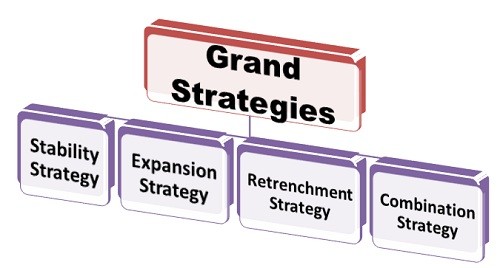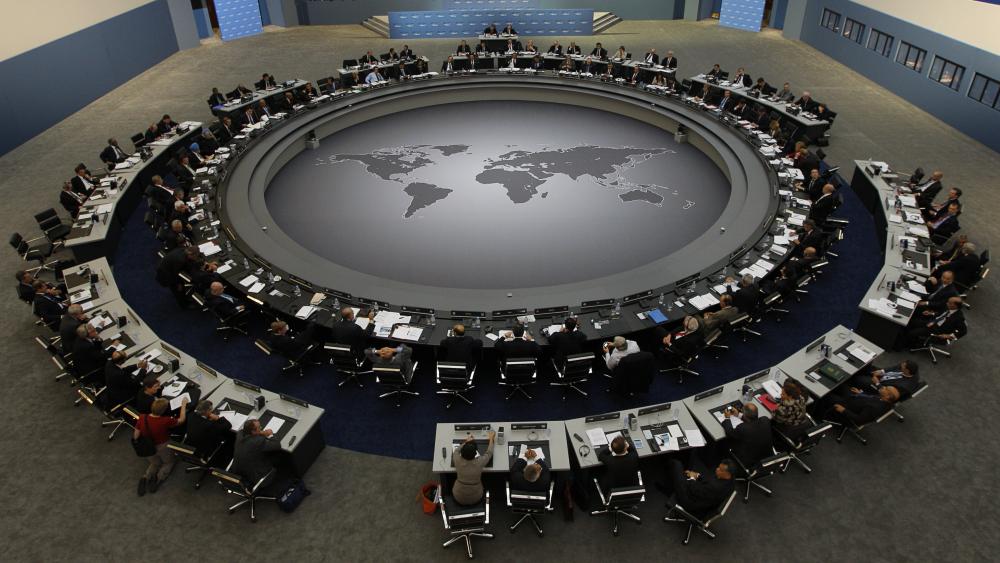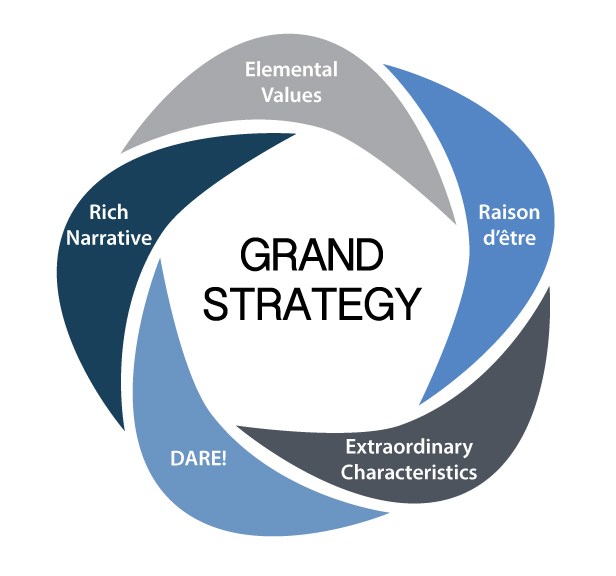Grand Strategy
Introduction
A country be it small or big, should formulate its strategy to achieve the overall national objectives. To pursue its international policies for maintaining sound relations with other states a country also formulate and pursue its strategy. However, in the question of Grand Strategy formulation one may think it is the big country’s aspiration and a small country should not be the party to it. During the Cold War era it was the only subject for the USA and the Russia. But with the end of Cold War and the emergence of a unipolar world made the Grand Strategy process elaboration difficult for great powers. Now the debates are around the way in which the Grand Strategy are still very active and spirited among both practitioners and scholars. The fact is that a great power must have a Grand Strategy in order to preserve its role and to pursue its national interests, but should a small country ignore it or should pursue it as any great power? Should Bangladesh being one of the small countries in size, but with big population and emerging economic power, pursue its grand strategy. This article would discuss whether small countries need a Grand Strategy or not. The general concept about the small country and the Grand Strategy will be discussed and then various attributes of Grand Strategy will be linked with the features of small countries to explore the options.

Small Country
To address the questions in regards to formulating Grand Strategy, first we have to define what a small country is and when a state is to be considered small. There are several criteria and indicators which may help us to identify a small country like – population, GDP, military assets and size of the country itself. However, smallness should be examined under the theory of relativity, it is small compared to what? Like Bangladesh according to these criteria is a small country compared to India but it is bigger than Nepal or Bhutan. That is why physical measurement is not enough to determine if a country is small or not. A crucial moment for determining how big a small country is the distribution of the state power in the country, in the region (among its neighbours) and how it acts on the international arena. From this perspective, a country can be considered small on the following attributes:
a. If it is suffering a shortage of autonomy.
b. If it has no influence on other states.
c. If it depends (economically, militarily etc) on other countries.
Grand Strategy
Grand Strategy consists of “all the materials intended for a security community.” Role of the Grand Strategy Coordinating and managing the band of a nation or nation to achieve the political objectives of the war. Grand Strategy should both calculate and develop the economic resources and manpower of nations in order to sustain the fighting services. Grand Strategy should also regulate the distribution of power between the several services, and between services and industry. The fighting power is but one of the instruments of Grand Strategy. The Grand Strategy has overlapped with foreign policies, but the Grand Strategy mainly focuses on the military impact of the policy. It is typically directed by the political leadership of a country with input from the most senior military officials. The development of a nation’s grand strategy can be extended for many years or even across many generations.
On the other hand, the fundamentals of strategy are bounded by the war, but the Grand Strategy looks beyond the war to the subsequent peace. It should not only combine the various instruments, but so regulate their use as to avoid damage to the future state of peace, security and prosperity. Some corporations and political parties have expanded the concept of grand strategy to describe multi-level strategies in general with strategic thinking. For business, a general term for a broad statement of strategic steps in the strategy of the Grand Strategy

Need for Grand Strategy
Considering the definition and all attributes of small countries, a legitimate question arises: Does a small country need a Grand Strategy? The answer of this question can either be positive or negative. Both the probabilities provide an idea to formulate a country’s strategy:
a. According to the definition above, a small country would lack human resources, industrial and military capability. Thus, it could be presumed that even if a small country designs a Grand Strategy it will lack the resources to implement it. Therefore, it would seem that small countries do not need a Grand Strategy However, a country that fits the criteria of being small countiy still has its national interests. Of course, these interests will be very minimalist in comparison to a great power strategy; mainly they will focus on national survival as j an independent and self-governing
country. As the Grand Strategy provides the linkage between national interests and actions to be undertaken to achieve these ambiguous interests, it is a useful tool that a country must design. Effective Grand Strategies can:
(1) Provide a unifying purpose and direction to national leaders, public policy makers, allies and influential citizens in the furtherance of mutual interests.
(2) Reduce the risks of chaotic decisions.
(3) Guide for a systematic and calculated approach towards the national interest for consolidating the efforts of all interested actors and might have a significant impact in the case of small countries.
(4) Helps to save the country’s limited resources by supervising their distribution. Thus, the probability of the achievement of its national interest under the Grand Strategy scenario is more likely than in its absence.
b. At a first sight, a Grand Strategy might not seem absolutely necessary for a small state which lives in stable security circumstances. It may be favoring a state without too much to fear and threats and with no pressing wants to remedy, especially if its system of governance is efficient and capable of rapid consensus based action. Unfortunately, this seems to be the case only of few small countries (Monaco, Luxemburg, Norway) which are typically outliers from the general rule. As such, a country may not need a security Grand Strategy because it is secured enough which is very unlikely for the most of small countries.
Developing Grand Strategy
Grand-strategic decisions are difficult because they deal with intangibles; they require leaders to think conceptually and to visualize the effects of a series of seemingly unrelated actions. To formulate the Grand Strategy a state should consider the following:
a. To present a functioning Grand Strategy, the national political process must achieve consensus amongst the polity that will implement it. This political mature approach seems to be less possible in small countries with unstable domestic political systems. A general view to small countries shows that political instability is one of the most pre-eminent features of a small country. That is why a small country under the conditions of instability will be just unable to follow the course designed by its strategy; so the efforts and resources used to elaborate such a strategy will be wasted in vain.
b. Grand Strategy requires great discourse. A small countiy needs prominent leaders who know how to use words to transform strategic reality. Words speak to the emotions and there must be a definite identity component of a leader that will act as magic. Unfortunately, just very few countries are lucky enough to have this kind of leaders.
There could be three different Grand Strategy scenarios to which small countries recourse in order to ensure its national interests. These three alternatives also imply a general characteristic of the strategy. Broadly it suggests that it cannot be aggressive and the country cannot expect to take a leading role. The alternatives are:
a. The Strategy of Neutrality. The neutrality has been seen as the alternative to military alliances and it is viewed as a safety belt if collective security failed. In realist accounts, neutrality was determined by exogenous and material forces – imposed by great powers or dictated by geography or small power status.. The commonly criticism to the strategy of neutrality was claimed by the realist theory and has dominated mainstream understanding of neutrals as small, weak, amoral and passive actors in the international system. The strategy of neutrality is not working without the recognition of great powers and the ability to stay neutral was dependent upon geo- strategic considerations rather than rights. The neutrality is often chosen as an answer to the proximity of two great powers.
b. The Strategy of Joining Strong Alliances. The alliances with small countries can help to pursue their national interests in preserving their autonomy and self-government. The European Union or the ASEAN probably could be the best example of how a joint alliance of few countries can help each other. The benefits of joining such alliance are even greater for a young small country with less experience in self-governance. A small country can go further and join more than one alliance (if it is not a military neutral country of course) or other economic oriented alliances. This strategy requires commitment to certain values shared between the member countries of the alliance or even some concession over the traditional state power. However, this strategy seems to be one of the most attractive to many small countries and they are in a competition to become one of the members in a strong alliance.
c. Seeking Protection from or Partnership with One Great Power Strategy. The maintenance of the dignity of independence and the systemic iack of self-government skills may determine some country to seek protection of the former ruler or administrator. But being a satellite to a great power can cost more in long-run perspective where other countries can avoid any kind of economic, diplomatic etc relations with such a satellite just because of its relations with that great power. In the last two decades most of European small countries emerged as a result of collapse of Ex Soviet Union or Former Yugoslavia.
Factors to Develop Grand Strategy

There are many factors which might influence a small country to develop a Grand Strategy. Few options are highlighted below:
a. Because a grand strategy must be sufficiently ambiguous to allow for broad interpretation, when implemented, it must ultimately leave the nation more secure options.
b. At times, the task of the leaders and policy makers is even more difficult in formulating it. That is why sometimes the absence of a Grand Strategy is a strategy itself, especially for a small country.
c. From the geographical point of view it is more plausible that a small country with a great power neighbour will choose to be a satellite of that power. The same geographical location might determine a country to declare its neutrality. For some small countries, there is a conflict of such factors – e.g. where the proximity of great powers and the economic interests of joining an alliance conflict.
Options for Small Country
The absence of the commitments allows the country to be flexible and a small country may not be strong enough to keep commitment due to resource constraint. Again, becoming satellite to a great power binds the small countries to adapt the country security strategy according to the agenda of great powers and to seek for more forthcoming benefits. It pushes small countries to change the course of its decisions according to the changes of the international arena. Indeed, it can be concluded that small countries are different, and these differences make them act in different manner. These distinctive patterns derive from their geography, natural resources, political institutions, and proximities to great powers, demographics and historical precedence. Within the unique context of particular circumstances a nation decides whether to design its Grand Strategy or not. It is prudent to say that a small country needs a Grand Strategy just because it would help to avoid chaotic decisions and save its scarce resources. It is definitely more substantial than the assertion that a small country does not need such a strategy due to its lack of capacity and resources to implement it. It is the Grand Strategy that answers this very question: how to achieve its goal when it has few resources and low capacities? So, considering the realistic possibilities of a county and the possible outcome of all factors described above, there is a good chance to design a small Grand Strategy for a small country. Bangladesh, being the small state in size suffering from resource constraint, may not opt for developing absolute Grand Strategy. On the other hand, to achieve the national objective and in order to maintain steady development, Bangladesh should choose to develop a Grand Strategy of a size that can be persuaded through available resources.
Conclusion
A country endeavours to formulate its Grand Strategy to protect its national integrity and interests. Be small or big, all countries formulate and pursue their own strategy that depends on their influence in the region, neutrality, state of security, ability of employing resources and ability of joining alliances. However, it may appear provisionally that a small country should not indulge her resources for formulating and perusing her Grand Strategy. But considering the attributes it may be difficult for a country to establish her as a small country and at the same time pursue for a Grand Strategy formulation. By and large, all countries will need to formulate individual Grand Strategy and the size of Grand Strategy will depend on ability to direct its resources to pursue it. In this context, a small country should have a small size Grand Strategy.
 আমি বাংলার কথা বলি
আমি বাংলার কথা বলি
